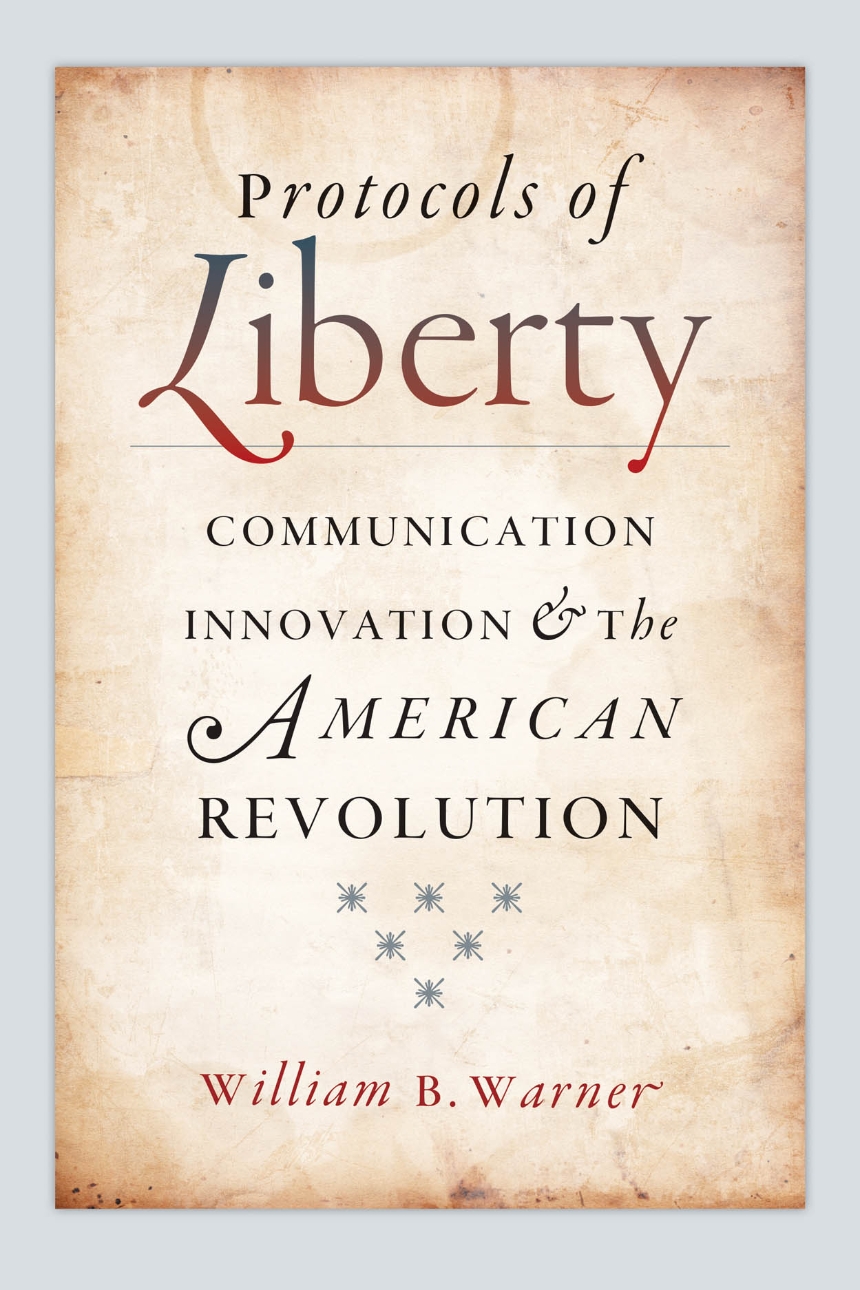Protocols of Liberty
Communication Innovation and the American Revolution
9780226061375
9780226061405
Protocols of Liberty
Communication Innovation and the American Revolution
The fledgling United States fought a war to achieve independence from Britain, but as John Adams said, the real revolution occurred “in the minds and hearts of the people” before the armed conflict ever began. Putting the practices of communication at the center of this intellectual revolution, Protocols of Liberty shows how American patriots—the Whigs—used new forms of communication to challenge British authority before any shots were fired at Lexington and Concord. To understand the triumph of the Whigs over the Brit-friendly Tories, William B. Warner argues that it is essential to understand the communication systems that shaped pre-Revolution events in the background. He explains the shift in power by tracing the invention of a new political agency, the Committee of Correspondence; the development of a new genre for political expression, the popular declaration; and the emergence of networks for collective political action, with the Continental Congress at its center. From the establishment of town meetings to the creation of a new postal system and, finally, the Declaration of Independence, Protocols of Liberty reveals that communication innovations contributed decisively to nation-building and continued to be key tools in later American political movements, like abolition and women’s suffrage, to oppose local custom and state law.
320 pages | 13 halftones, 14 line drawings | 6 x 9 | © 2013
History: American History
Literature and Literary Criticism: American and Canadian Literature, British and Irish Literature
Political Science: American Government and Politics
Reviews
Table of Contents
Acknowledgments
Introduction: Communication and the American Crisis
1 1 The Invention of the Boston Committee of Correspondence and the Popular Declaration
2 1 Th e Protocols of the Declarations and the Eclipse of Royal Power in Massachusetts in 1773
3 1 The Post and Newspaper in British America: A Communication System in Crisis
4 1 Th e Whig Network Scales Up: Inflecting the Crisis from Williamsburg
5 1 “A Chain of Freedom Has Been Formed”: The First Continental Congress Develops into the Hub of an Intercolonial Network
6 1 The Panorama of the Declaration
Conclusion: Th e American Revolution as a Gift
References
Index
Introduction: Communication and the American Crisis
1 1 The Invention of the Boston Committee of Correspondence and the Popular Declaration
2 1 Th e Protocols of the Declarations and the Eclipse of Royal Power in Massachusetts in 1773
3 1 The Post and Newspaper in British America: A Communication System in Crisis
4 1 Th e Whig Network Scales Up: Inflecting the Crisis from Williamsburg
5 1 “A Chain of Freedom Has Been Formed”: The First Continental Congress Develops into the Hub of an Intercolonial Network
6 1 The Panorama of the Declaration
Conclusion: Th e American Revolution as a Gift
References
Index
